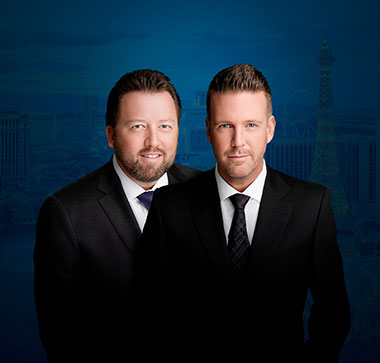Like the rest of the country and the world, Nevada has seen one of the hottest summers yet, with health organizations and local governments preparing for additional heatwaves to wash over the state. Temperatures last month in Las Vegas hit a record 116 degrees from July 23-24th while Reno reached 108 degrees on July 16, with multiple other days over 100 [1]. This has put immense pressure on many outside workers who do laborious work, including construction, farming and Highway maintenance workers, to name a few.
Nevada residents are advised to stay indoors for most of the day to stay cool during these record-breaking heatwaves, and to avoid heat stroke and dehydration. However, those who work outside have no choice but to be outdoors and Nevada state laws do not protect outdoor workers. In the wake of high temperatures during the summer months, several western states including Washington and California passed rules requiring employers to provide outdoor workers with adequate water, shade, as well as sufficient breaks in the extreme heat. Nevada, however, has not passed such legislature, and proposals of a similar rule stalled at the legislative level earlier this year; State officials have stated that they are currently drafting similar legislation, but relief has yet to come.
While Nevada does not have specific heat regulations, employers must adhere to the general duty clause. The General Duty clause means that employers must provide their employees with an environment that is safe and free of recognized hazards. Extreme heat is a recognized hazard. The Nevada Department of Business and Industry states that while many companies take this obligation seriously during the heat wave, some do not. Victoria Carreon, an administrator for the organization, discussed how they have continuously worked with more businesses to provide them with information on employee safety and heat illnesses. They have also created classes and safety consultation regarding these topics.
Despite these steps to educate employers, heat stress complaints to Nevada OSHA have continued to increase in both northern and southern parts of the state. In 2021, there were 344 complaints (261 in southern NV, and 83 in Northern NV), a sharp increase from 2020 which only saw 135 complaints, and 2019 which saw 81 complaints. Perhaps this increase shouldn’t be surprising, considering that a Climate Central study shows that Reno is the fastest warming city in the country while Las Vegas comes in second [2]. Reno saw a 10.8 degree increase in summer temperatures since 1970, while Vegas saw a 5.8-degree increase.
Cinthia Moore of the Nevada Environmental Justice Coalition stated how when it comes to outdoor workers, some supervisors are more concerned with meeting deadlines, making shade and water breaks less frequent and increasing the chances of people passing out at work. In response, Senator Edgar Flores from Clark County has sponsored legislation to require that Nevada employers with more than twenty-five employees enact better safety protocols when temperature exceeds 95 degrees or when the air quality exceeds 200. It would also mandate ten-minute water breaks hourly and shade breaks. While this bill did not advance, it will likely still come in the form of state regulation in the future.
In the meantime, if you are an outdoor worker and believe that your employer is not following their general duty you can submit a complaint with Nevada OSHA who can investigate. [3]
Worker’s Compensation for Heat-Related Incidents in Nevada
It is important for your employer to take heat-related injuries seriously, and if your internal body temperature reaches 104 degrees it can potentially result in death. Heatstroke is one of the most common medical conditions associated with heat, but heat exhaustion, rhabdomyolysis, heat syncope, heat cramps, and heat rash are all possible results. Early signs of heatstroke include disorientation, slurred speech, losing conscientiousness, and mental dysfunction. If you or a co-worker is experiencing similar symptom, it is important to call 911 immediately, as leaving heat-strokes untreated increases the chance of the body overheating and death. It is then important to move the worker to a shaded and cool area and remove any outer, heavier clothing. You can cool the worker more quickly by placing them in cold water or ice, wetting the skin, and placing cold clothes on the skin.[4]
You may be eligible for worker’s compensation in Las Vegas if you suffered a heat stroke or other heat-induced condition while performing work-related duties. However, an employer’s insurer may attempt to argue your condition was a result of preexisting conditions or unrelated to your employment. A personal injury lawyer may be able to help you understand if you have a viable claim against your employer, as well as gather the proper records and data necessary to help you get the compensation you deserve.
[1] https://thenevadaindependent.com/article/how-to-keep-cool-during-nevadas-heatwave-this-weekend
[4] https://www.cdc.gov/niosh/topics/heatstress/heatrelillness.html


